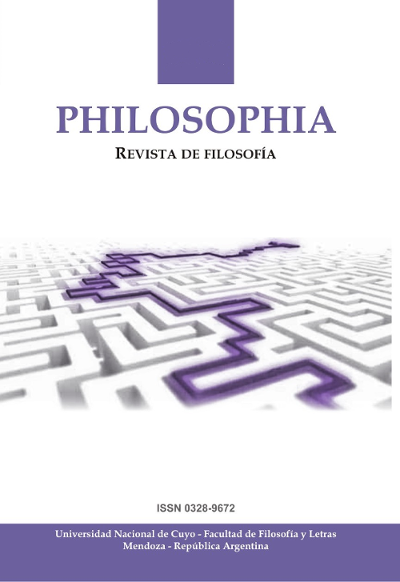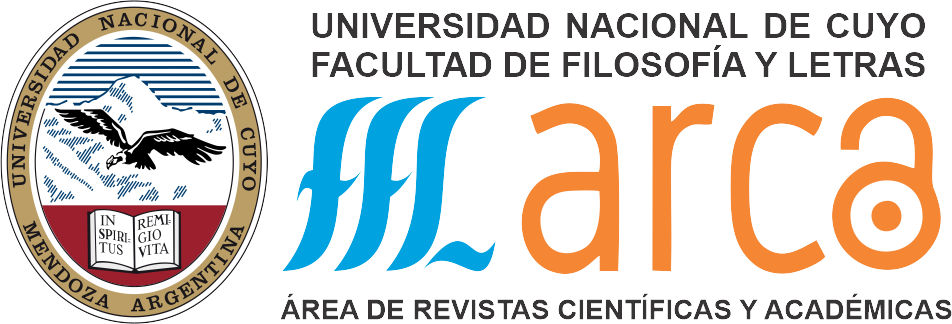God and the Current Science
DOI:
https://doi.org/10.48162/rev.50.010Keywords:
Classical Theism, Contemporary Theism, Cosmological Argument, Intelligent Design Theory, PseudoscienceAbstract
Today at least three arguments are being discussed that, based on the results of scientific research, try to prove the existence either of a cause of the physical universe, one of them, or of an intelligence transcendent to it, the other two. These arguments are: the cosmological argument, the theory of intelligent design and the anthropic principle. Here we present a synthesis of the first two and make an evaluation of their worth from the philosophy of science. Unlike classic theistic demonstrations, also based on science, such as Thomas Aquinas’1st and 5th ways, developed in his Summa Theologica or that of Newton in his Principia, none of the current arguments cited conclude that God exists, if we understand by "God" an omnipotent, omniscient and benevolent being, in other words, the Biblical God. They stop on step before, entrusting to Philosophy the task of continuing and demonstrating that this first cause or that transcendent intelligence is God. In addition to giving our judgment on the probative value of the cosmological argument and of the intelligent design theory, we demonstrate, based on the usual notions of science and pseudoscience, that the latter is a genuine scientific hypothesis. In this way, we refute the spreading and false affirmation that this theory is a case of pseudoscience.
References
Axe, Douglas. "Estimating the prevalence of protein sequences adopting functional enzyme folds". Journal of Molecular Biology 341 (2004): 1295-1315.
Axe, Douglas. Undeniable. New York: Harper One, 2016.
Behe, Michael. The Edge of Evolution. New York: Free Press, 2007.
Behe, Michael. "The modern intelligent design hypothesis". En God and Design: The Teleological Argument and Modern Science, ed. por N. Manson. London & N, 276-291. York: Routledge, 2003.
Behe, Michael. Darwin’s Black Box: The Biochemical Challenge to Evolution. New York: Free Press, 1996.
Burtt, Edwin. The Metaphysical Foundations of Modern Science. London: Paul Kegan, 1954.
Craig Lane, William. "Naturalism and the origin of the universe". En The Nature of Nature, ed. por B. Gordon y W. Dembski, 506-534. Wilmington: Intercollegiate Studies Institute, 2011.
Dembski, William. The Design Inference: Eliminating Chance Through Small Probabilities. Cambridge Massachusetts: Cambridge U. Press, 1998.
Gauger, Ann & Axe, Douglas. ʺThe evolutionary accessibility of new enzyme functions: A case of study from the biotin pathwayʺ. Bio-Complexity 2, n° 1 (2011): 1-17.
Hawking, Stephen & Roger Penrose. "The singularities of the gravitational collapse and cosmology", Proceedings of the Royal Society of London A-314 (1970): 529-548.
Hawking, Stephen. A Brief History of Time. New York: Bantam Books, 1988.
Jacob, Françoise. "Evolution and tinkering". Science 196 (1977): 1161-1966.
Kant, Enmanuel. Historia General de la Naturaleza y Teoría del Cielo. Buenos Aires: Juárez Editor, 1960.
Küppers, Bernd Olaf. Information and the Origin of Life. Cambridge, Massachusetts: The MIT Press, 1990.
Laplace, Pierre-Simon. Exposition du Systême du Monde. Paris: De la imprimerie du Cercle Social, L'an IV de la République Française.
Published
Versions
- 01-04-2022 (2)
- 31-12-2021 (1)
How to Cite
Issue
Section
License
Copyright (c) 2021 Philosophia

This work is licensed under a Creative Commons Attribution-NonCommercial-ShareAlike 3.0 Unported License.
Se permite la reproducción de los artículos siempre y cuando se cite la fuente. This work is protected under license Attribution-NonCommercial-ShareAlike 3.0 Unported (CC BY-NC-SA 3.0) You are free to: Share "” copy and redistribute the material in any medium or format; Adapt "” remix, transform, and build upon the material
The licensor cannot revoke these freedoms as long as you follow the license terms.
Under the following terms:
Attribution "” You must give appropriate credit, provide a link to the license, and indicate if changes were made. You may do so in any reasonable manner, but not in any way that suggests the licensor endorses you or your use.
NonCommercial "” You may not use the material for commercial purposes.
ShareAlike "” If you remix, transform, or build upon the material, you must distribute your contributions under the same license as the original.
No additional restrictions "” You may not apply legal terms or technological measures that legally restrict others from doing anything the license permits.
For more information, please visit: https://creativecommons.org/licenses/by-nc-sa/3.0/deed.en















